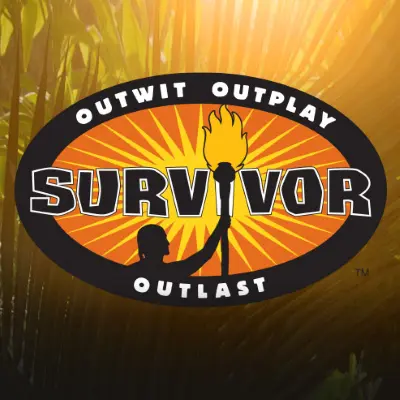Survivor is so integrated into the fabric of American culture it’s become an extension of the society it helped to shape
-

"You can’t talk about America without talking about television; you can’t talk about television without talking about reality, which long ago crossed over from novelty to fact of life; and you can’t talk about reality without talking about Survivor, which showed how much resonance and profit there was to be found in the field," says Alison Herman in reflecting on Survivor's 20th anniversary and 40 seasons. "Imitators were inevitable, and arrived in such numbers that they now make up a substantial share of modern-day programming." Herman adds: "The list of concepts popularized by Survivor doubles as a list of what viewers have been trained to understand as the stylistic trademarks of unscripted, and sometimes scripted-deliberately-invoking-unscripted, TV. One-on-one testimonials where cast members add context and conflicting perspectives to previously recorded footage. Villains who aren’t here to make friends. (Relatedly, iconic catchphrases that make villains into memes.) Action that’s massaged after the fact so that it more neatly fits an agreed-upon 'story line.' One-time 'gotcha' moments, like (Mark) Burnett’s admission that some scenes from Season 1 were reshot, would sink like a stone with contemporary viewers who now take for granted that their entertainment is far more mediated than not. It’s possible many, if not most, of these conventions would have been arrived at independently if Survivor had never made it to air...Nevertheless, Survivor is the obvious ancestor of not just every competitive reality show with one elimination per week, but every show that’s learned to shape lay people into memorable characters."
ALSO:
- In praise of Survivor: Winners at War's escapism during the pandemic: "The show helped replace my nightmares of seeing my mom stuck in a nursing home alone with dreams of eating coconuts and digging in sand during an immunity challenge," says Paige Cornwell. "For at least a few minutes, conversations with a group of dedicated and newfound Survivor fans can be about the moment J’Tia dumped out her group’s rice, instead of worries about the health of our elderly relatives or possible layoffs in our future. The past episodes hearken back to our seemingly pre-pandemic times, back in — was that only a few months ago? It seems longer. Survivor: Stay-At-Home would never work. A surgical mask would hinder whispers of diabolical plans to vote out your supposed alliance member. Diving several feet in the ocean to release a locked buoy would be impossible with latex gloves. (Ozzy could probably do it, though.) Contestants touch each other a lot, which is jarring in our current minimal-contact world."
- Survivor fans use "Edgic" to try to decipher the editing: "Edgic, short for 'editing and logic,' is the sabermetrics of Survivor, a rigorous, analytical, and often eye-opening approach to classifying every contestant’s onscreen persona and predicting who will win each season of the long-running reality series," explains Ben Lindbergh. "It has a history almost as long as the 20-year-old show’s, a formidable corpus of accumulated wisdom, and an enthusiastic online community dedicated to data-gathering and debate. And as Survivor grows more sophisticated, edgic evolves to keep pace."
- Ranking Survivor's 100 greatest moments: From Johnny Fairplay's fake dead grandma to Richard Hatch winning
- Survivor has often failed when it comes to race, but it has also shown that racism is inescapable
- Here are the eight biggest storylines of the Winners at War season finale
- Tribal council remains the heart of Survivor, invoking fear in virtually event contestant
- How Boston Rob's legend grew alongside Survivor
- From challenge beast to buddy system: Presenting a Survivor dictionary
TOPICS: Survivor, CBS, Boston Rob Mariano, Jeff Probst, Reality TV
More Survivor on Primetimer:- Jeff Probst wants fans to help design future Survivor challenges
- Deleted Survivor 49 scene shows Savannah channeling her competitive roots ahead of challenge
- Survivor season 49 week 11 recap - Sophie, Savannah, and Rizo feud as Steven shakes up the game
- "I am slightly panicked": Survivor 49 host Jeff Probst on Rizo's fake idol play at Tribal Council
